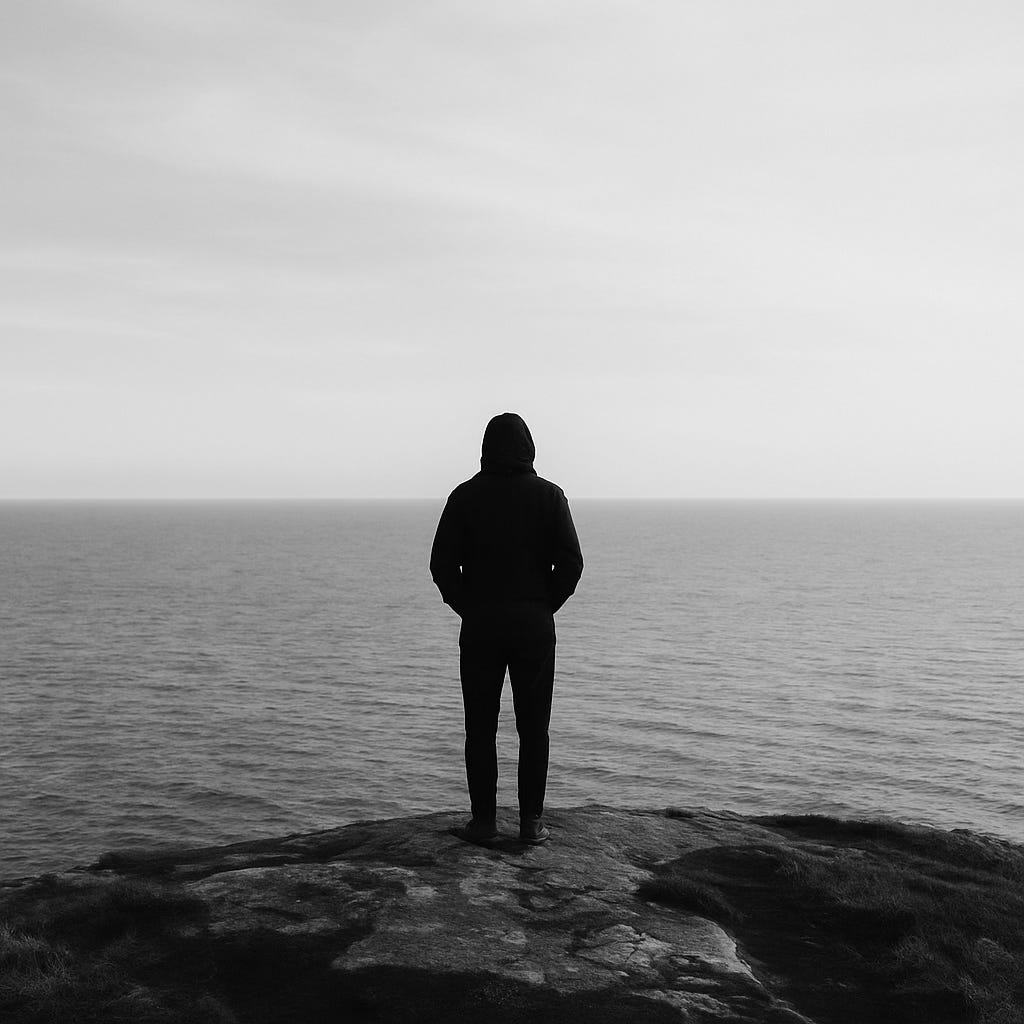You Don’t Have to Prove You Exist
We were trained to earn love through doing. This is what happens when you stop.
There’s a kind of hunger that doesn’t come from the body. It comes from the part of us that isn’t yet sure we exist. The part that equates movement with worth, noise with visibility, and results with value. I know this hunger well.
Last week, I lost presence. Not in a dramatic way, but in the quiet return of old patterns. The urge to fill the day, to do something, to produce, to fix. The need to be seen doing. To prove I was still here. To prove I still mattered.
It started after returning from a short trip to Miami to visit family. Being around people I care about, people who are building, expanding, thriving, it stirred something. Not envy. Not quite comparison. Something subtler. An internal scan of my own status, contribution, visibility. “Have I done enough?” “Am I where I should be?”
You walk through certain rooms, drive past certain views, and part of your nervous system tries to calibrate. You don’t want it to. You know better. But it happens anyway. You see reflections of past ambitions, former selves, lives you almost lived. And in that environment, if you're not vigilant, the inner dialogue starts to tighten:
"What am I doing?"
"Why am I not moving faster?"
"I should be further along."
That’s the trance.
We’re trained to be in motion. School, career, achievement, relevance. It’s all built on forward velocity. Even healing gets turned into performance. We say things like "I’m working on myself" or "I’m making progress," because stillness feels like failure. Because if we aren’t producing evidence of growth, we fear we’re losing value.
But here’s the truth that presence keeps teaching me:
Stillness is not failure. And silence is not absence. It is sovereignty.
That voice inside that wants to be seen, affirmed, confirmed, it’s not shameful. It’s human. It comes from the part of us that learned early on that recognition equals safety. That performance equals love. That being quiet meant being invisible. And being invisible meant being alone.
So we talk. We do. We update. We produce. Not just because we want to—but because somewhere deep inside, we fear that without output, we won’t be real.
It sounds irrational until you catch yourself doing it. Filling space with action. Filling silence with commentary. Staying in motion not because there’s something essential to do, but because stopping feels like erasure.
This is not just psychological. It lives in the nervous system. The activation loop. The dopamine tether. The compulsion to refresh, to check, to respond, to move. The inability to sit with the full weight of the moment without trying to shape it into proof.
After that week in Miami, I realized something simple but sobering: if I had done nothing for two days, or two weeks, or even two years—if I had sat still, completely still, with no proof of movement, I would be more whole than I am now.
But I didn’t. I moved. I grasped. I acted. And now I sit here, not in shame, but in clarity. Watching it. Seeing how deep the urge goes. And forgiving it. Because that’s the work, too.
To perform less. To prove less. To let silence say something truer than explanation ever could.
Because I see myself now. And that changes everything.
Not with perfection. Not every hour. Not every day. But something is different. I don’t need to be seen to believe I’m here. I don’t need external validation to confirm my value. I don’t need the algorithm to tell me I exist.
This doesn’t mean I won’t speak, or create, or lead. It just means I’ll know when I’m doing it from fullness and when I’m doing it from fear. And I can choose.
That’s the difference.
Presence isn’t passivity. It’s precision. It’s the exactness of knowing what’s yours to carry and what can be put down. And some days, what can be put down is everything.
You don’t have to prove you exist. You already do. And if you’re willing to be still long enough, you might even feel it.
Anchor: Silence is not absence. It is sovereignty.



